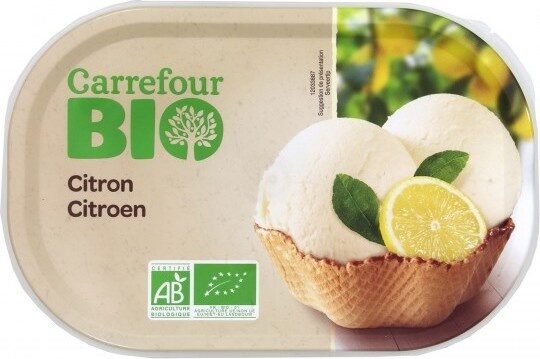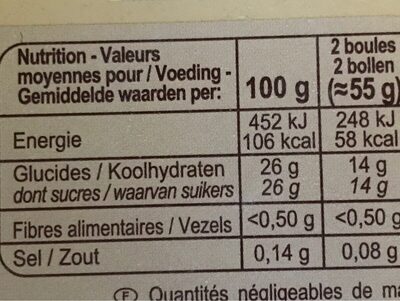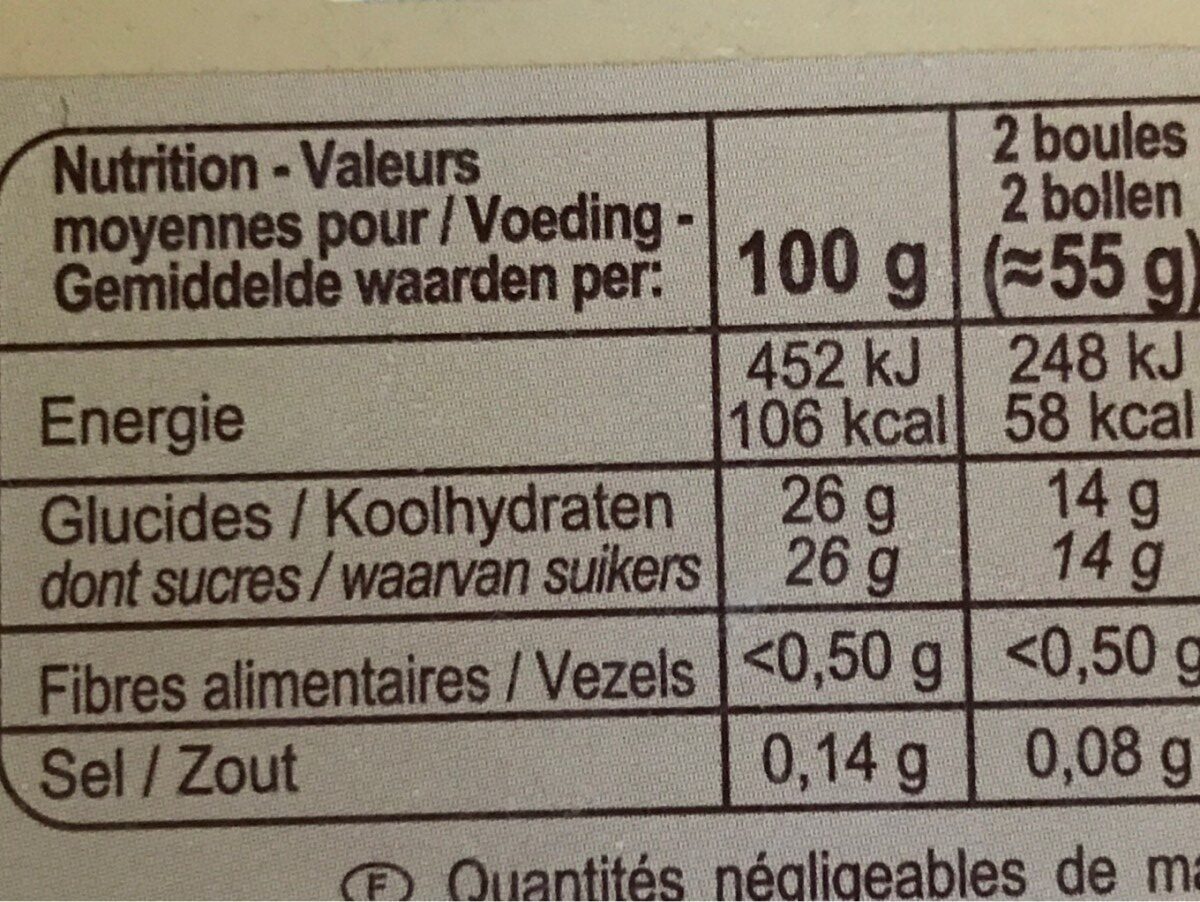Citron - Carrefour Bio - 495 g
This product page is not complete. You can help to complete it by editing it and adding more data from the photos we have, or by taking more photos using the app for Android or iPhone/iPad. Thank you!
×
Some of the data for this product has been provided directly by the manufacturer Carrefour.
Barcode: 3560071197704 (EAN / EAN-13)
Common name: Sorbet plein fruit au citron jaune issu de l'agriculture biologique.
Quantity: 495 g
Brands: Carrefour Bio, Carrefour
Categories: Desserts, Frozen foods, Frozen desserts, Ice creams and sorbets, Sorbets, Lemon sorbets
Labels, certifications, awards:
Organic, EU Organic, Non-EU Agriculture, EU Agriculture, EU/non-EU Agriculture, FR-BIO-01, Made in France, AB Agriculture Biologique

Stores: Carrefour
Matching with your preferences
Environment
Carbon footprint
Packaging
Transportation
Labels
Other information
Conservation conditions: Conservation : A consommer de préférence avant la date indiquée sur le côté de l'emballage et à conserver dans un congélateur*** à -18°C. ATTENTION, NE PAS RECONGELER APRÈS DÉCONGÉLATION.
Customer service: Interdis TSA 91431 - 91343 MASSY Cedex - France
Report a problem
Data sources
Product added on by kiliweb
Last edit of product page on by naruyoko.
Product page also edited by ecoscore-impact-estimator, moon-rabbit, openfoodfacts-contributors, org-carrefour, roboto-app, sebleouf, teolemon, yuka.R2IwOVA0a2hoK3NRdmM4RjBpejF3dE5PeWJ2eFhUMkZETWsvSUE9PQ, yuka.U0wwTEU1OEZpdklFdi9KbXB3UDYxTjFMeDRXdFl6eUhNdU1XSVE9PQ, yuka.sY2b0xO6T85zoF3NwEKvlh1NCdX_mi7bazHShUGQ3POwFKHZZuBsxLmqEqo.












